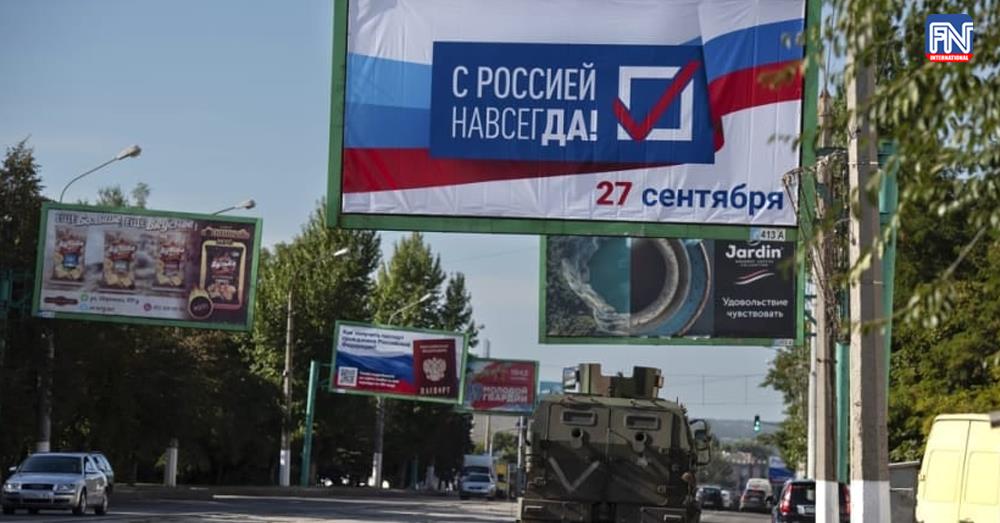KYIV, Sep 27 (Reuters) - Russian-organised referendums that could lead to annexing 15 per cent of Ukraine's territory were due to end on Tuesday (Sep 27) as the Kremlin said it made no decisions on closing its borders as the first mobilisation since World War II prompted some to flee.
Voting in the Ukrainian provinces of Luhansk, Donetsk, Kherson and Zaporizhzhia in the east and southeast began on Friday and have been dismissed as a sham by Western nations, which have pledged not to recognise the results.
In Russia, the call-up of some 300,000 reservists has led to the first sustained protests since the invasion began, with one monitoring group estimating at least 2,000 people have been arrested so far. All public criticism of Russia's "special military operation" is banned.
Flights out of Russia have sold out and cars have clogged border checkpoints, with reports of a 48-hour queue at the sole road border to Georgia, the rare pro-Western neighbour that allows Russian citizens to enter without a visa.
Asked about the prospect of the border being shut, Kremlin spokesman Dmitry Peskov told reporters on Monday: "I don't know anything about this. At the moment, no decisions have been taken on this."
Russia counts millions of former conscripts as official reservists. The authorities have not spelled out precisely who is due to be called up, as that part of President Vladimir Putin's order is classified.
The mobilisation has also seen the first sustained criticism of the authorities within state-controlled media since the war began.
But Sergei Tsekov, a senior lawmaker who represents Russian-annexed Crimea in Russia's upper house of parliament, told RIA news agency: "Everyone who is of conscription age should be banned from travelling abroad in the current situation."
Two exiled news sites - Meduza and Novaya Gazeta Europe - both reported that the authorities were planning to ban men from leaving, citing unidentified officials.
Moscow says it wants to rid Ukraine of nationalists and protect Russian-speaking communities. Kyiv and the West describe Russia's actions as an unprovoked war of aggression.
Late on Monday, Ukrainian President Volodymyr Zelenskiy described the military situation in Donetsk as "particularly severe".
"We are doing everything to contain enemy activity. This is our No. 1 goal right now because Donbas is still the No. 1 goal for the occupiers," he said, referring to the wider region that encompasses Donetsk and Luhansk.
Russia carried out at least five attacks on targets in the Odesa region using Iranian drones in the last few days, according to the regional administration.
Ukraine's air force said it destroyed four Shahed-136 "kamikaze" drones. Reuters could not immediately verify the reports.
More US funding looks to be on the way as negotiators of a stop-gap spending Bill in Congress have agreed to include nearly US$12 billion in new military and economic aid to Ukraine, according to sources.
